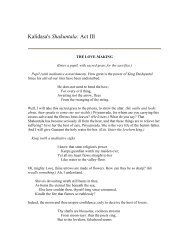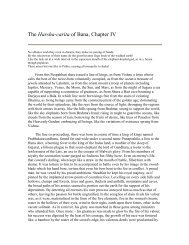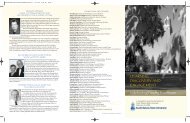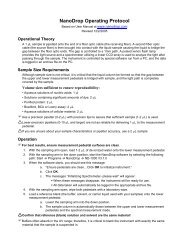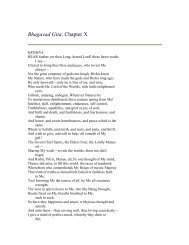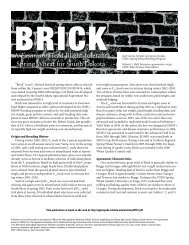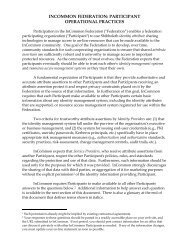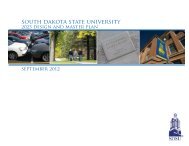Khoh Copper-plate Inscription of the Maharaja Samkshobha (528 ...
Khoh Copper-plate Inscription of the Maharaja Samkshobha (528 ...
Khoh Copper-plate Inscription of the Maharaja Samkshobha (528 ...
Create successful ePaper yourself
Turn your PDF publications into a flip-book with our unique Google optimized e-Paper software.
<strong>Khoh</strong> <strong>Copper</strong>-<strong>plate</strong> <strong>Inscription</strong> <strong>of</strong> <strong>the</strong> <strong>Maharaja</strong><br />
<strong>Samkshobha</strong> (<strong>528</strong>-529 CE)<br />
Ôm! Reverence to <strong>the</strong> divine (god) Vâsudêva! Hail! In two centuries <strong>of</strong> years,<br />
increased by nine; in <strong>the</strong> enjoyment <strong>of</strong> sovereignty by <strong>the</strong> Gupta kings; in <strong>the</strong> glorious<br />
augmenting and victorious reign; in <strong>the</strong> Mahâ-Ashvayuja samvatsara; on <strong>the</strong> thirteenth<br />
lunar day <strong>of</strong> <strong>the</strong> bright fortnight <strong>of</strong> <strong>the</strong> month Chaitra,— on this (lunar day), (specified)<br />
as above by <strong>the</strong> samvatsara and month and day,—<br />
(Line 3.)— By <strong>the</strong> Mahârâja, <strong>the</strong> illustrious Samkshôbha,— who is born in <strong>the</strong><br />
family <strong>of</strong> <strong>the</strong> kingly ascetic Susharman, who had learned <strong>the</strong> whole truth <strong>of</strong> <strong>the</strong> fourteen<br />
sections <strong>of</strong> science; who was a great sage, (being) indeed (an incarnation <strong>of</strong>) Kapila; who<br />
knew all <strong>the</strong> first principles; (and) who was <strong>of</strong> <strong>the</strong> Bharadvâja gôtra;— who is <strong>the</strong> greatgrandson<br />
<strong>of</strong> <strong>the</strong> son <strong>of</strong> <strong>the</strong> Mahârâja, <strong>the</strong> illustrious Dêvâdhya;— who is <strong>the</strong> greatgrandson<br />
<strong>of</strong> <strong>the</strong> Mahârâja, <strong>the</strong> illustrious Prabhañjana;— who is <strong>the</strong> grandson <strong>of</strong> <strong>the</strong><br />
Mahârâja, <strong>the</strong> illustrious Dâmôdara;— who is <strong>the</strong> son <strong>of</strong> <strong>the</strong> Mahârâja, <strong>the</strong> illustrious<br />
Hastin, who was <strong>the</strong> giver <strong>of</strong> thousands <strong>of</strong> cows, and elephants, and horses, and gold, and<br />
many lands; who was earnest in paying respect to (his) spiritual preceptor and (his) fa<strong>the</strong>r<br />
and mo<strong>the</strong>r; who was extremely devoted to <strong>the</strong> gods and Brâhmans; who was victorious<br />
in many hundreds <strong>of</strong> battles; who sought to govern properly <strong>the</strong> kingdom <strong>of</strong> Dabhâlâ,<br />
which had come (to him) by inheritance, toge<strong>the</strong>r with (all <strong>the</strong> country) included in <strong>the</strong><br />
eighteen forest kingdoms; (and) whose fame was renowned through many good<br />
qualities;— who is intent upon establishing <strong>the</strong> religious duties <strong>of</strong> <strong>the</strong> castes and <strong>the</strong><br />
different periods <strong>of</strong> life;— who is a most devout worshipper <strong>of</strong> <strong>the</strong> Divine One;— who is<br />
extremely devoted to (his) ancestors;— (and) who causes <strong>the</strong> happiness <strong>of</strong> his own<br />
race,—<br />
(L. 11.)—(By him),— for <strong>the</strong> purpose <strong>of</strong> increasing <strong>the</strong> religious merit <strong>of</strong> (his)<br />
parents and <strong>of</strong> himself,— at <strong>the</strong> request <strong>of</strong> Chhôdugômin, and (with <strong>the</strong> object <strong>of</strong>)<br />
causing him to ascend <strong>the</strong> steps <strong>of</strong> <strong>the</strong> ladder that leads to heaven,— half <strong>of</strong> <strong>the</strong> village <strong>of</strong><br />
Ôpâni, m <strong>the</strong> Maninâga pêtha, is granted by a copper-charter, with <strong>the</strong> exception <strong>of</strong> (<strong>the</strong><br />
right to fines imposed on) thieves and mischief-doers, for <strong>the</strong> purpose <strong>of</strong> observing <strong>the</strong><br />
bali, charu, and sattra, at <strong>the</strong> temple, which (he) has caused to be built, <strong>of</strong> <strong>the</strong> divine<br />
(goddess) Pishtapurî, and for <strong>the</strong> purpose <strong>of</strong> renewing whatever may become broken or<br />
torn.<br />
(L. 15.)— Therefore, even in future times, no obstacle (to <strong>the</strong> enjoyment <strong>of</strong> this<br />
grant) is to be caused by those who are born in Our family, or by my feudatories. This<br />
injunction having been given, he who behaves o<strong>the</strong>rwise,— him I will consume with a<br />
great contempt, even when I have passed into ano<strong>the</strong>r body.
(L. 18.)— And it has been said by <strong>the</strong> venerable supreme sage, Vyâsa, <strong>the</strong> arranger<br />
<strong>of</strong> <strong>the</strong> Vêdas,—" O Yudhishthira, best <strong>of</strong> kings, carefully preserve land that has<br />
previously been given to <strong>the</strong> twice-born; (verily) <strong>the</strong> preservation (<strong>of</strong> a grant) (is) more<br />
meritorious than making a grant! The earth has been enjoyed by many kings,<br />
commencing with Sagara; whosoever at any time possesses <strong>the</strong> earth, to him belongs, at<br />
that time, <strong>the</strong> reward (<strong>of</strong> this grant that is now made, if he continue it)! The giver <strong>of</strong> land<br />
enjoys happiness in heaven for sixty thousand years; (but) <strong>the</strong> confiscator (<strong>of</strong> a grant),<br />
and he who assents to (an act <strong>of</strong> confiscation), shall dwell for <strong>the</strong> same number <strong>of</strong> years<br />
in hell! (There is) no gift better than a gift <strong>of</strong> land, and <strong>the</strong> preservation (<strong>of</strong> a grant) (is)<br />
better than making a grant; all kings, commencing with Nriga, have attained heaven (by)<br />
preserving land that had been granted!"<br />
(L. 23.)— And (this charter) has been written by Îshvaradâsa, <strong>the</strong> grandson <strong>of</strong><br />
Jîvita, (and) <strong>the</strong> son <strong>of</strong> Bhujamgadâsa. The order (is that) <strong>of</strong> his own mouth. (The month)<br />
Chaitra; <strong>the</strong> day 20 (and) 9.<br />
From: Fleet, John F. Corpus <strong>Inscription</strong>um Indicarum: <strong>Inscription</strong>s <strong>of</strong> <strong>the</strong> Early Guptas.<br />
Vol. III. Calcutta: Government <strong>of</strong> India, Central Publications Branch, 1888, 115-116.




